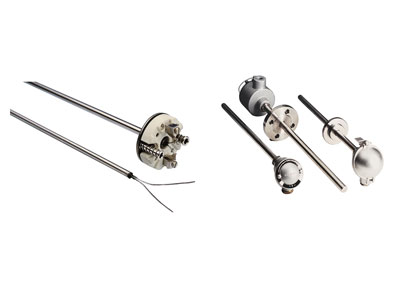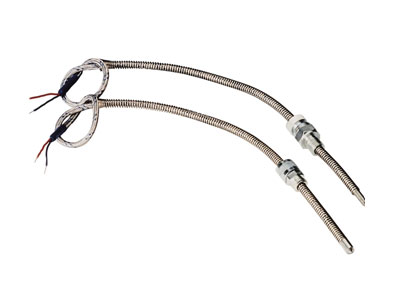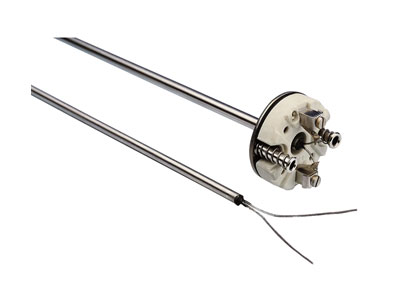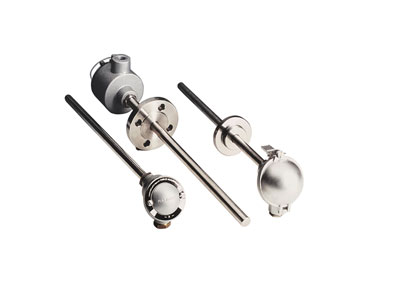Gefran Thermocouples | TC5,TC5N, TC8 Thermocouples
IndMALL Automation presents the Gefran thermocouples, engineered for precision in temperature measurement across diverse industrial applications. The TC5/TC5N models are designed for temperatures up to 250°C, featuring AISI 303 stainless steel tips and IEC 584.2 class 2 standard tolerances. The TCI series expands capabilities with temperature limits ranging from -40 to +1050°C, accommodating types T, J, E, and K, with specific tolerances for high accuracy. The TC8 line further extends to temperatures up to 1000°C, offering robust ceramic insulation for enhanced durability and performance.


Gefran Thermocouples: TC5/TC5N
Maximum Temperature Limit: Ranges from -40 to +250°C. (Refer to the specific table for thermocouple cable used.)
- Reference Tolerances: Complies with IEC 584.2 class 2 standards.
- For type J, K thermocouples: ±2.5°C tolerance within the range of -40 to +333°C.
- Material: AISI 303 stainless steel tip for durability and corrosion resistance.
- Mounting: Features a threading adjustment spring with a diameter of 8mm and length of 300mm.
- Cable Standard: Conforms to DIN standard, ensuring quality and compatibility.

Gefran Thermocouples TCI
Temperature Limits:
- Type T: -40 to +350°C; Type J: -40 to +550°C
- Type E: -40 to +600°C; Type K: -40 to +1050°C (Refer to table for sheath diameters)
- For Type T:
- ±0.5°C (-40 to +125°C); ±0.004 [t] (t > +375°C)
- For Types J, E, K:
- ±1.5°C (-40 to +375°C); ±0.004 [t] (t > +375°C)

Thermocouples Gefran: TC8
Temperature Limits:
- Type J: -40 to +750°C; Type E: -40 to +900°C
- Type K: -40 to +1000°C
- Tolerance (IEC Standard 584.2/Class 2):
- ± 2.5°C for temperatures between -40 and +333°C.
- ± 0.0075 [t] for temperatures above +333°C.
- Insulation: Ceramic insulation of the thermocouple element enhances durability and thermal response.
Gefran offers a comprehensive range of thermocouples designed for accurate and reliable temperature measurement in various industrial applications. These sensors are critical for processes involving plastics, metals, and other manufacturing materials. Gefran’s thermocouples come in several models, each tailored for specific environmental conditions and temperature ranges:
Standard Models: Suitable for general applications, offering robust temperature measurement capabilities.
High-Temperature Models: Designed to withstand extreme temperatures, making them ideal for use in high-heat environments like furnaces and kilns.
Specialized Models: Engineered for specific applications such as the plastics industry or for R&D purposes, often featuring enhanced accuracy and specialized materials like ceramic insulation to improve durability and response time.
Frequently Asked Questions
What is a thermocouple used for?
A thermocouple is used to measure temperature by connecting two dissimilar metal wires at one end. When heated, this junction generates a small voltage that is proportional to temperature. This voltage is then read by an instrument designed to accept thermocouple input, allowing for accurate temperature monitoring in various industrial, scientific, and consumer applications.
What is the function of a thermocouple?
A thermocouple functions as a temperature sensor by utilizing two dissimilar metal wires joined at one end. When heated, this junction generates a voltage differential that varies with temperature changes. The opposite ends of the wires connect to a thermocouple-capable device, such as a thermometer, which interprets this voltage as a temperature reading, providing precise temperature monitoring.
What is the most commonly used thermocouple?
The most commonly used thermocouple is the Type K Thermocouple (Nickel-Chromium / Nickel-Alumel). It is favored for its affordability, accuracy, reliability, and broad temperature range. The Type K can measure temperatures from -454°F to 2,300°F (-270°C to 1260°C), making it versatile for various applications from industrial to scientific.
Request Quote for Gefran Thermocouples.


